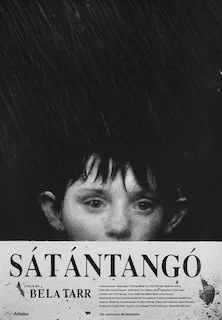Writer, Novelist and Screenwriter: Hungary’s László Krasznahorkai Wins the 2025 Nobel Prize for Literature
zita kisgergely
On 9th October 2025, the Swedish Academy awarded the Nobel Prize in Literature to László Krasznahorkai, praising “his compelling and visionary oeuvre that, in the midst of apocalyptic terror, reaffirms the power of art.”
László Krasznahorkai. Photo via Wikipedia.
The Swedish Academy went on to say in a statement that, “Laszlo Krasznahorkai is a great epic writer in the Central European tradition that extends through Kafka to Thomas Bernhard and is characterised by absurdism and grotesque excess."
The 71-year-old writer of nine novels as well as many short stories, essays and screenplays is renowned for not only his pessimistic – although at times darkly humorous – work, but also his never-ending sentences. His 400-page novel of 2022, “Herscht 07769”, is allegedly written in a single sentence (we haven’t read that one yet, so are unable to confirm). The words that typically characterize Krasznahorkai’s work: dystopian and surreal. Susan Sonntag labelled the author “the master of apocalypse.” His novels move with slow deliberation, often portraying moments when societies are on the brink of collapse.
Krasznahorkai’s stories capture the absurdity of the world we live in; it should come as no surprise then that the author is deeply influenced by Kafka, and in particular “The Castle”. In 2013 Krasznahorkai told the White Review, "When I am not reading Kafka, I am thinking about Kafka. When I am not thinking about Kafka, I miss thinking about him." While speaking to Swedish Radio, he also revealed that, as a novelist, “bitterness” was his greatest inspiration.
Published in 1985, Krasznahorkai’s first novel “Sátántangó” is set in a remote rural area of Hungary where a group of poverty-stricken residents live on an abandoned collective farm. The author admitted that he had only planned on writing this one book. However, upon re-reading it, he decided to start another in the hope of improving, adding, "My life is a permanent correction". Wise words we should all live by.
Film poster via Wikipedia.
This first novel was turned into a film in 1994 by legendary Hungarian film director Béla Tarr, with Krasznahorkai writing the screenplay of the seven-hour film. He also adapted his second novel into a screenplay, “The Melancholy of Resistance” for the director, which was released as WERCKMEISTER HARMONIES (2000). Frequent collaborators – Tarr has only made films from screenplays written by Krasznahorkai – the two men co-wrote several films together including DAMNATION (1988), THE MAN FROM LONDON (2007) and THE TURIN HORSE (2011).
Born and bred in the small town of Gyula in south-east Hungary near the Romanian border, Krasznahorkai studied in Szeged and Budapest before spending a year in West Berlin in 1987 as part of a student exchange program. The experiences of living under communism and the ensuing change of regime in 1989 clearly impacted him deeply. Frequently going back and forth to reside in either Germany or Hungary, the writer has also travelled widely through Europe and the United States. Spending significant periods of time in China and Japan has also informed his work.
Krasznahorkai’s latest novel was released in 2024, ”Zsomle is Waiting”. Also set in rural Hungary, it’s a tale about 91-year-old Uncle Józsi Kada, a retired electrician and descendant of King Béla IV and Genghis Khan. Although he could lay claim to the Hungarian throne, he goes to great lengths to disappear – until he’s found by his faithful followers. We’ve put it on our TBR pile of books!
Sources and further information:
Flatpack Films has years of experience servicing international brands, agencies, and production companies. Filming in Hungary is easy when relying on their knowledge of the market and ability to solve complex needs. They bring the best that Hungary has to offer in terms of unique locations, exceptionally skilled crews, top-of-the-line equipment and technical solutions. Backed by an impeccable track record, Flatpack Films has worked with world-class clients including Samsung, Samsonite, Toyota, Braun, Chivas Regal and many more.
Get in touch and learn more about Budapest film locations, Hungarian film incentives, film tax credits in Hungary and how Flatpack Films can bring your project to life through a highly bespoke approach.

